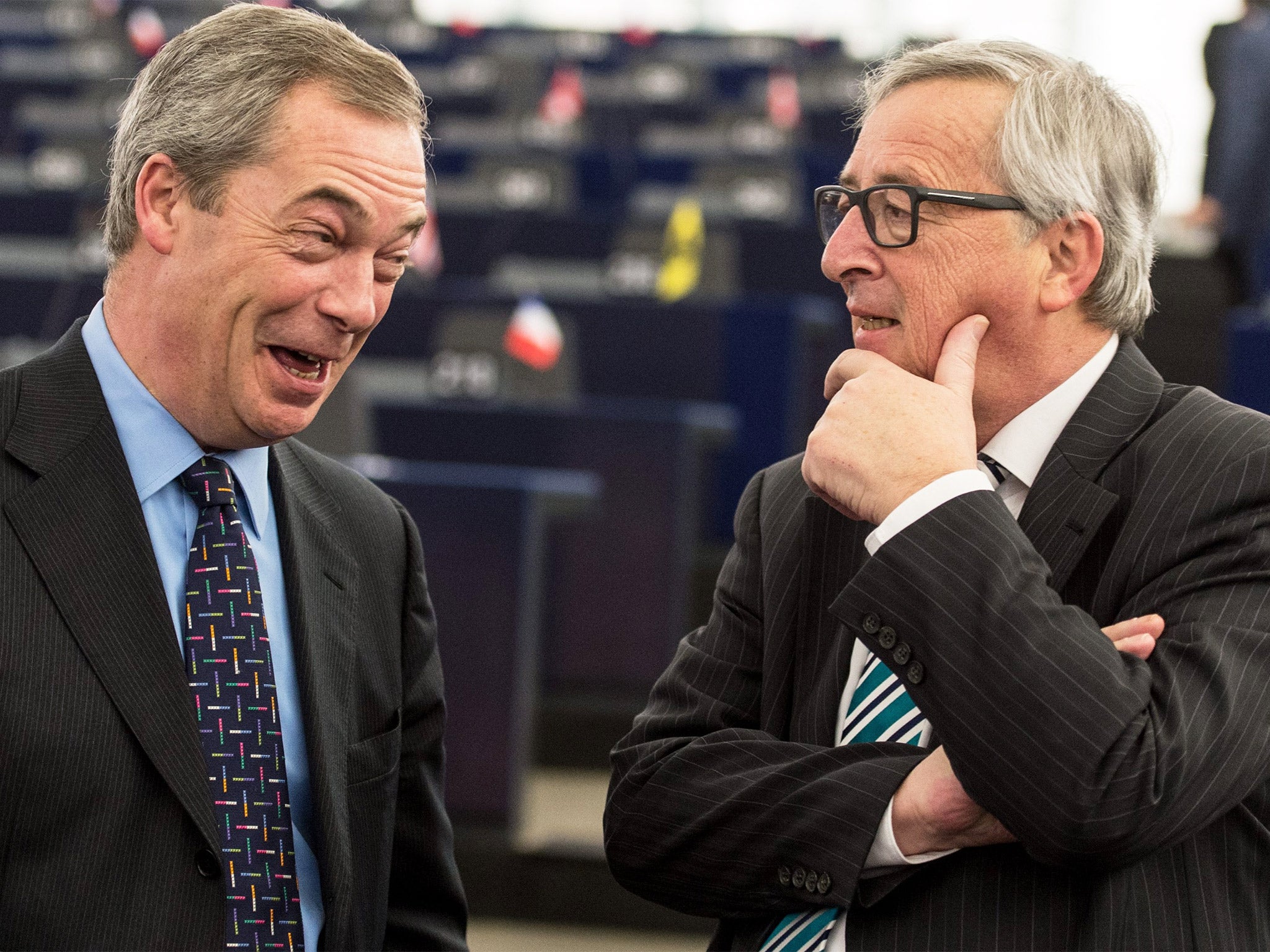Want the UK to leave Europe? You're suffering from British Special Snowflake Syndrome
Britain is a small island with diminishing power on the global stage. It's time we accepted our place, rather than clinging delusionally to our colonial past

David Cameron has been frantically trying to convince MPs that his draft deal from the European Union this week actually delivers on the "substantial changes" he promised to make to the UK's relationship with Europe.
But irrespective of what deal he gets and whether his party accept it, Britain sees itself as above and also separate from Europe - as if it is doing Europe a favour by sticking around. The argument is framed against a false idea of British exceptionalism, one that suffers from a severe case of Special Snowflake Syndrome.
Let’s look at the Britain envisaged by UKIP in a post-EU world for instance:
“A Britain that has confidence, stands proud, projects a national identity based on our Judaeo-Christian heritage, and our tremendous natural resources.”
This in itself will be exclusionary for any British people who do not easily identify as "native" British. The reference to Judaeo-Christian heritage clearly refers to those who are white and Western European. Those on the left proposinga #Brexit naively ignore that this is what post-EU Britain could look like. It’d be a crass, nationalist, isolationist Britain with little acceptance of people who do not fit the historical mould.
British arrogance stems from the fact that the nation has struggled to find its place in the world in the aftermath of the Empire and the World Wars that marred the first half of the 20th century. This period saw the drastic rise of the USA as the dominant imperial power, with the biggest army and the largest share of the world's wealth. Britain's relative importance was grossly diminished, even if it does still hold a seat on the UN Security Council. Simply put, we’re not such big shots any more - and we could be about to be relegated to the kids’ table.
The simple fact is that Britain is now relatively insignificant in the international arena. The result has been a romanticization of the era when Britain was "great" and a longing to return to this. In reality, of course, it was only the ruling elites - as it is today - who benefited from colonial riches. Ordinary British people, many of whom now support parties like Ukip or the EU Out campaign, weren’t exactly living the high life. One thing that does bolster the economy and improve ordinary British lives? Immigration.
Nowhere is the insecurity over Britain's importance clearer than in the playing up of the "special relationship" with the USA. Cameron nearly wet himself with glee when Barack Obama "sometimes" called him "bro".
This identity crisis is why there has been an over-emphasis on how Britain "helped to end fascism”, often drowning out realistic criticisms about the fact that the British government continues to collude with some of the world's most authoritarian regimes. Such false arguments were trotted out by the Prime Minister when Vladimir Putin referred to Britain as a "small island" – and, let’s face it, he was only telling the truth.
Many people have been led by simplistic rhetoric and manipulated statistics to blame the EU for their problems, linking immigration from Europe to a lack of jobs and economic instability at home. But if Britain left the EU, these issues may get worse rather than better.
Migration from the EU is not causing insecurity; these are structural issues for which neo-liberal economics, supported by and encouraged by our government, is responsible. The EU is grossly flawed but in many ways is a better alternative than an isolationist, racist and delusional Britain that will come out of any #Brexit. It’s time for Britain to accept its place in the world - and in Europe.
This article was originally published in its longer version at the Consented blog. It has been republished here with permission from the author
Join our commenting forum
Join thought-provoking conversations, follow other Independent readers and see their replies
Comments